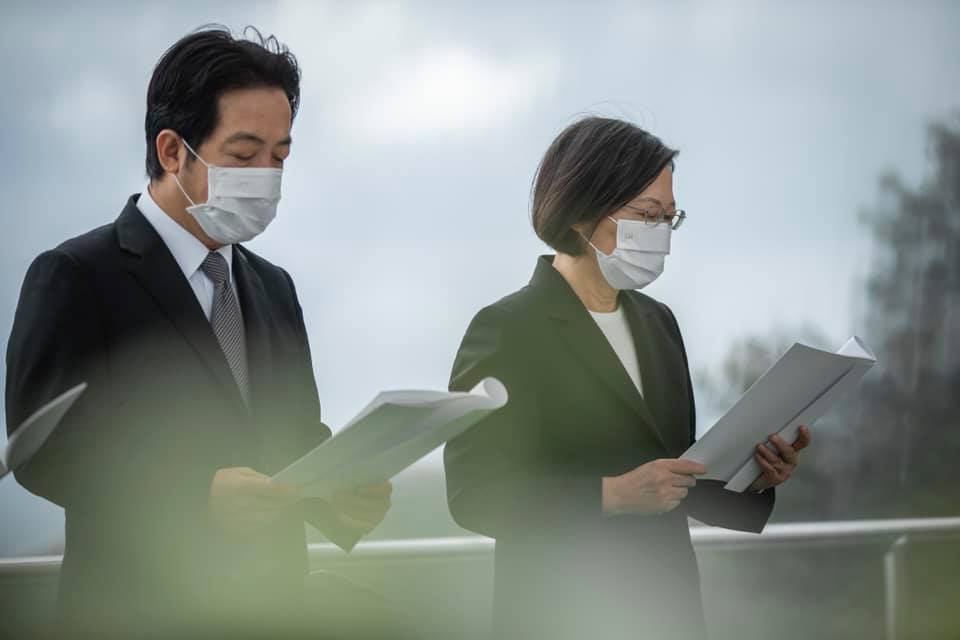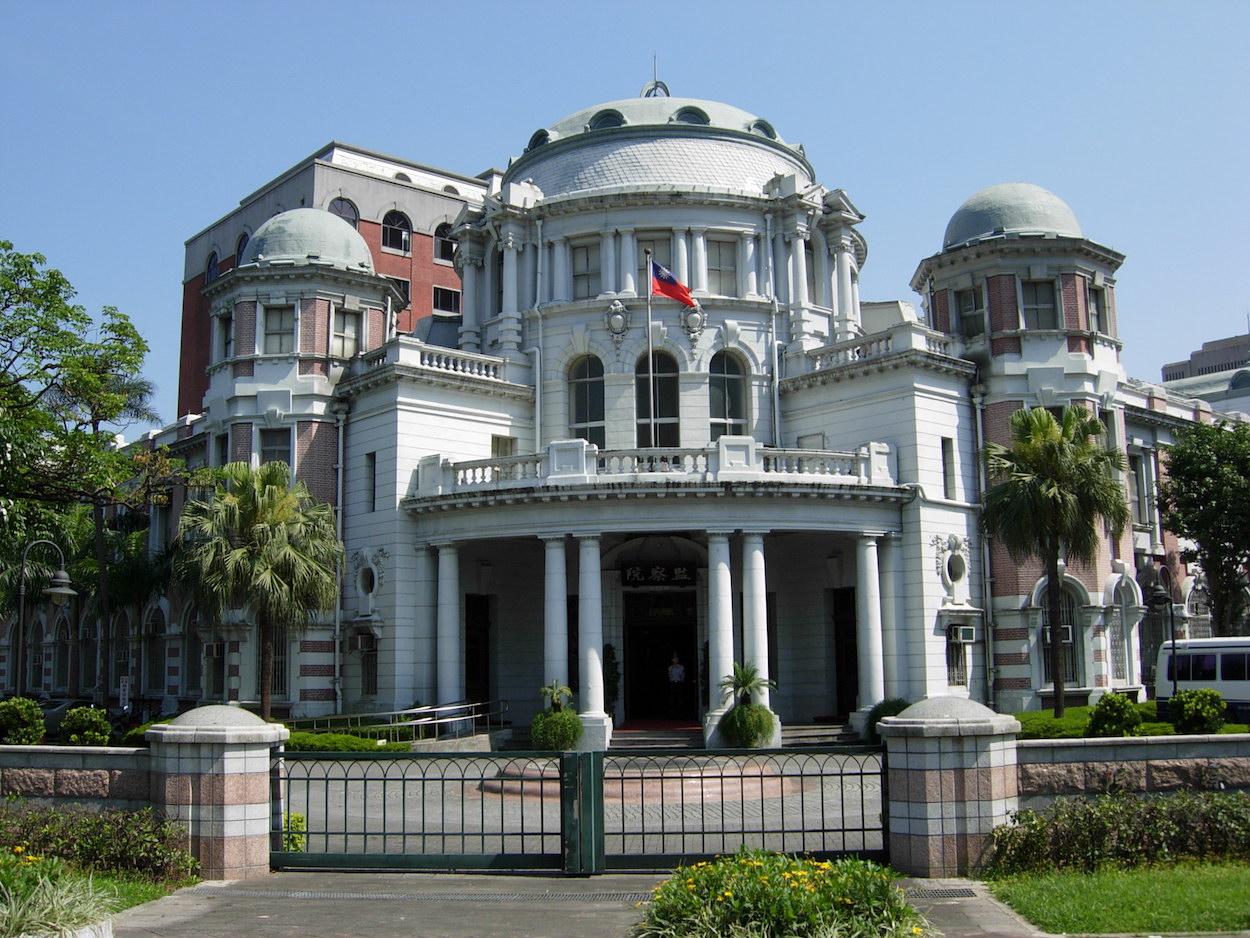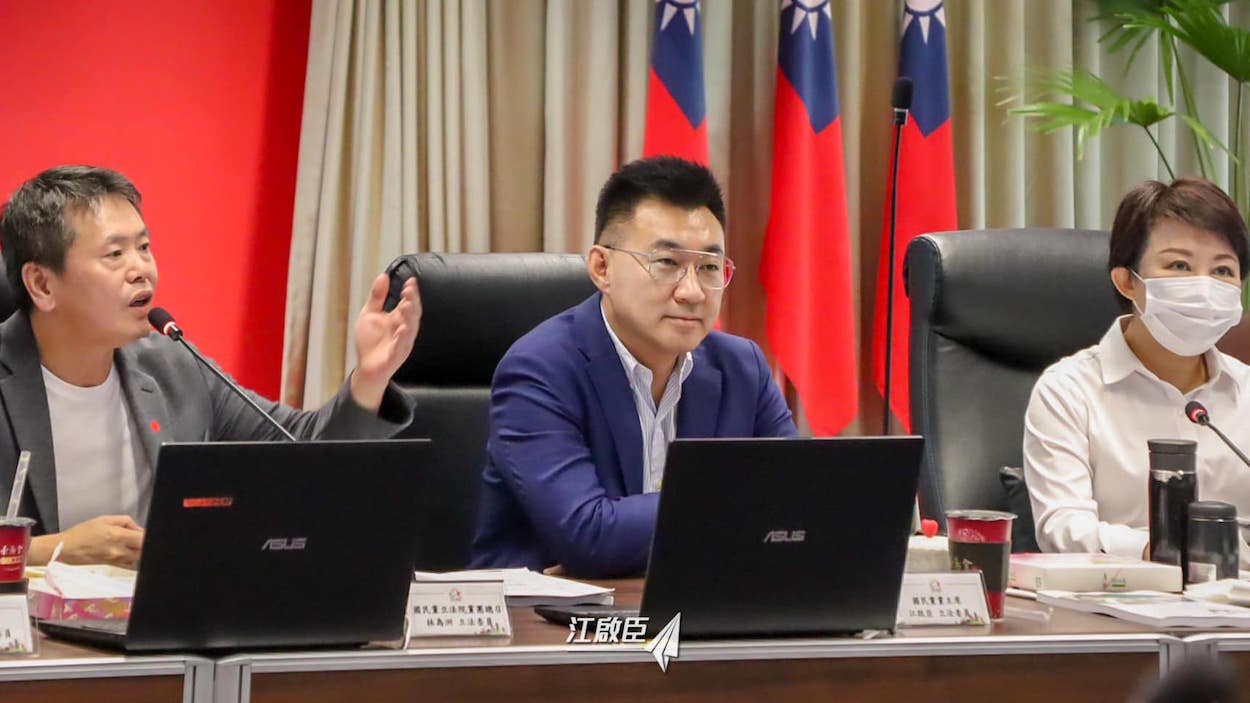by Brian Hioe
語言:
English
Photo Credit: Tsai Ing-wen/Facebook
CONSTITUTIONAL REFORM is set to take center stage as a leading issue in the current legislative session, with a number of key issues on the table. However, it is less clear what the ultimate results of constitutional reform will be, given conflicting and irreconcilable imperatives between the pan-Green and pan-Blue camps.
Cross-party negotiations have led to the DPP and KMT agreeing to allocate seats by proportion on a 39-member Constitutional Amendment Committee. As a result, the DPP was allocated 22 seats, the KMT fourteen seats, the TPP two seats, and the NPP one seat. However, the DPP decided to reserve two of its seats for independent legislator Freddy Lim and Chen Po-wei of the Taiwan Statebuilding Party, resulting in that all political parties currently represented in the legislature will have seats on the Constitutional Amendment Committee.
 Taiwanese president Tsai Ing-wen (right) and vice-president William Lai (left). Photo credit: Tsai Ing-wen/Facebook
Taiwanese president Tsai Ing-wen (right) and vice-president William Lai (left). Photo credit: Tsai Ing-wen/Facebook
Taiwanese president Tsai Ing-wen indicated at the DPP’s national congress in July that constitutional reform would be a major priority of the DPP in the upcoming legislative session. Likewise, young politicians across party lines in the pan-Green camp, including independents such as Lim, as well as DPP politicians, recently came together to form a caucus to call for constitutional reform, indicating that younger pan-Green politicians intend to present a united front on constitutional reform going forward.
The demand for constitutional reform is sufficiently bipartisan that even the KMT is likely to agree to some version of constitutional reform. Namely, many take the view that the current system of government is cumbersome and needs to be streamlined, in order to allow for the more effective implementation of governance.
That being said, international observers have sometimes been wary that the DPP could seek to use constitutional reform as a means of enacting a pro-independence political agenda. But as indicated by Tsai at the DPP national congress, this is not likely to be a priority for her. Members of the pan-Green camp have sought to point to the ROC constitution as ill-fitting to Taiwan, seeing as it is literally the constitution of a much larger political polity that was brought to Taiwan by the KMT. Yet Tsai is not likely to rock the boat regarding sovereignty issues, given the possibility of provoking China.
On the other hand, it is probable that the KMT may attack the DPP as seeking to denigrate and erode away at the institutions of the ROC through constitutional reform. At the KMT’s party congress, the KMT adopted preserving the ROC as its core party value, which may be something that the KMT stakes out as a point of contention.
 The Control Yuan. Photo credit: Taiwan Junior/WikiCommons/CC
The Control Yuan. Photo credit: Taiwan Junior/WikiCommons/CC
What seems likely to pass by way of constitutional reform is lowering the voting age to eighteen, seeing as Taiwan has a voting age of twenty. This results in Taiwan having one of the highest voting ages in the world. The change in voting age will benefit pan-Green political parties, given that young people increasingly vote pan-Green, and though the KMT may not be pleased with this outcome, it may have few means of dissenting.
What is more ambiguous is as to whether other longtime issues regarding the Taiwanese constitution will be addressed. There have long been proposals to streamline Taiwan’s five-fold division of powers by integrating the Control Yuan, an oversight body, and the Examination Yuan, which manages national exams, into the Executive Yuan and Ministry of Education. Though both major political parties have indicated that they would be willing to abolish the Control Yuan and Examination Yuan, it is to be seen whether they follow through with this, or whether the two Yuans will instead become an issue that is fought over. Though the DPP has stated that it expects bipartisan consensus on the abolition of the two Yuans, if the KMT’s attempted occupation of the Legislative Yuan in June to try and block Chen Chu’s nomination as head of the Control Yuan is any indication, this is very possible.
Another fought over issue may be that of national referendums, with the KMT likely hoping to push for changes to once again tie the date of national referendums to national elections. The results of 2018 elections seemed to demonstrate to the KMT that national referendums allowed it to militate on national issues in a way that could benefit it electorally. Indeed, constitutional reforms will need to be approved by the general public by a national referendum once passed by the legislature, though it has been speculated as to whether the legislature will seek to lower the benchmark for constitutional reforms.
Otherwise, one expects it to be contested territory between the pan-Green and pan-Blue camps as to lowering or raising the benchmarks needed to appoint individuals to the Council of Grand Justices, as well as the Examination and Control Yuans, or changing the length of presidential terms. Similarly, some proposals have sought to change the current balance of power between the premier and presidency, by making the premier appointed by the legislature instead of the presidency, changing the term limits for the president and legislators, or changing the amount of time between transitions of presidential administration.
 KMT chair Johnny Chiang (center). Photo credit: Johnny Chiang/Facebook
KMT chair Johnny Chiang (center). Photo credit: Johnny Chiang/Facebook
Furthermore, Freddy Lim has proposed increasing human rights protections in the constitution, and some DPP legislators have sought to change the wording of the constitution to provide for the government using the word “Taiwan” internationally more often. The KMT may resist the latter, perceiving this as another effort by the DPP at “desinicization” and promoting “cultural Taiwanese independence.”
Constitutional reform is likely to be an issue that divides along partisan lines, then. How successful constitutional reform will be still remains to be seen.

